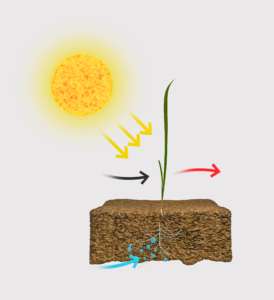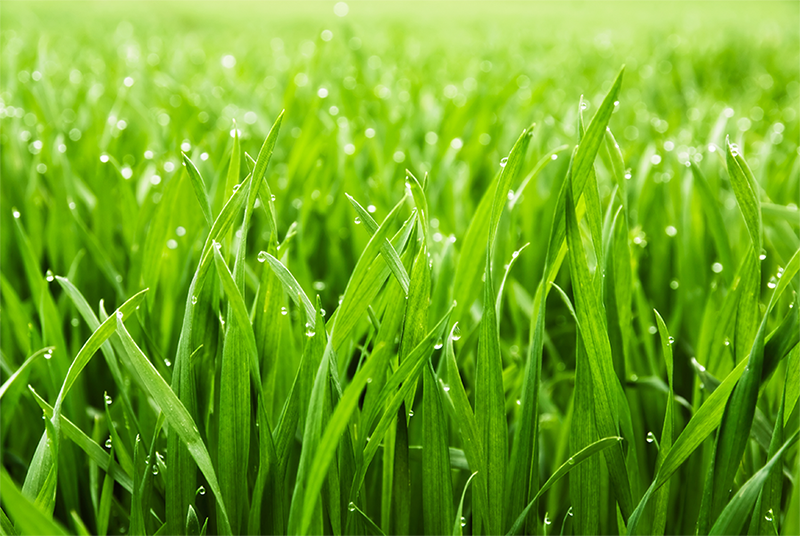Most of us mow the lawn to keep it tidy. Once a week, if we have time. And when the grass is not as lush as we would like, we blame the climate and try to adjust water supply and supplements. With questionable results.
Truth is, as turfgrass experts would tell you, that the single most important aspect of lawn management is how often it gets mown. Here’s why.
The one-third rule
First of all, grass should never be allowed to grow too high in between two cuts. Savvy gardeners follow the “one-third rule”: a cut should never exceed one third of the blade length. This is because when a significant portion of the leaf is removed, the grass suffers a photosynthesis stress.
Mowing once a week isn’t good as grass blades will grow one third of their total length in 4-5 days.
Photosynthesis stress
Grass, like all green plants, captures energy from sunlight and converts it into carbohydrates. This process is called photosynthesis. When severe defoliation occurs, grass will give priority to leaves development and roots will cease to grow for several days.

Frequency of mowing
Golf greens are the icon of perfect grass. They are mown daily. The finest ones, twice a day.
As it comes to frequency of mowing, the rule is simple: the more often, the better. No exception. This is especially true if you intend to keep your lawn short: the shorter a turf is mown, the more frequently it must be trimmed. This is why a robot mower will give you the best lawn you’ve ever had.
Mulch, don’t bag
The tops of grass blades contain high amounts of nitrogen, the most important nutrient for turf. Very short, soft clippings such as those produced with the daily trimming of a robot mower are best as they decompose quickly, returning nitrogen to the grass and substantially reducing the need for fertilization.
Weed control
Several countries around the world have either restricted or banned glyphosate, the active ingredient of herbicides. Even where it isn’t, it’s better to avoid it.
Frequent mowing is a great strategy to prevent weeds from proliferating without using chemical weed killers:
This practice will make your grass denser, leaving no room for weeds.
The daily trimming of a robot mower will prevent weeds from growing high and spread seeds
